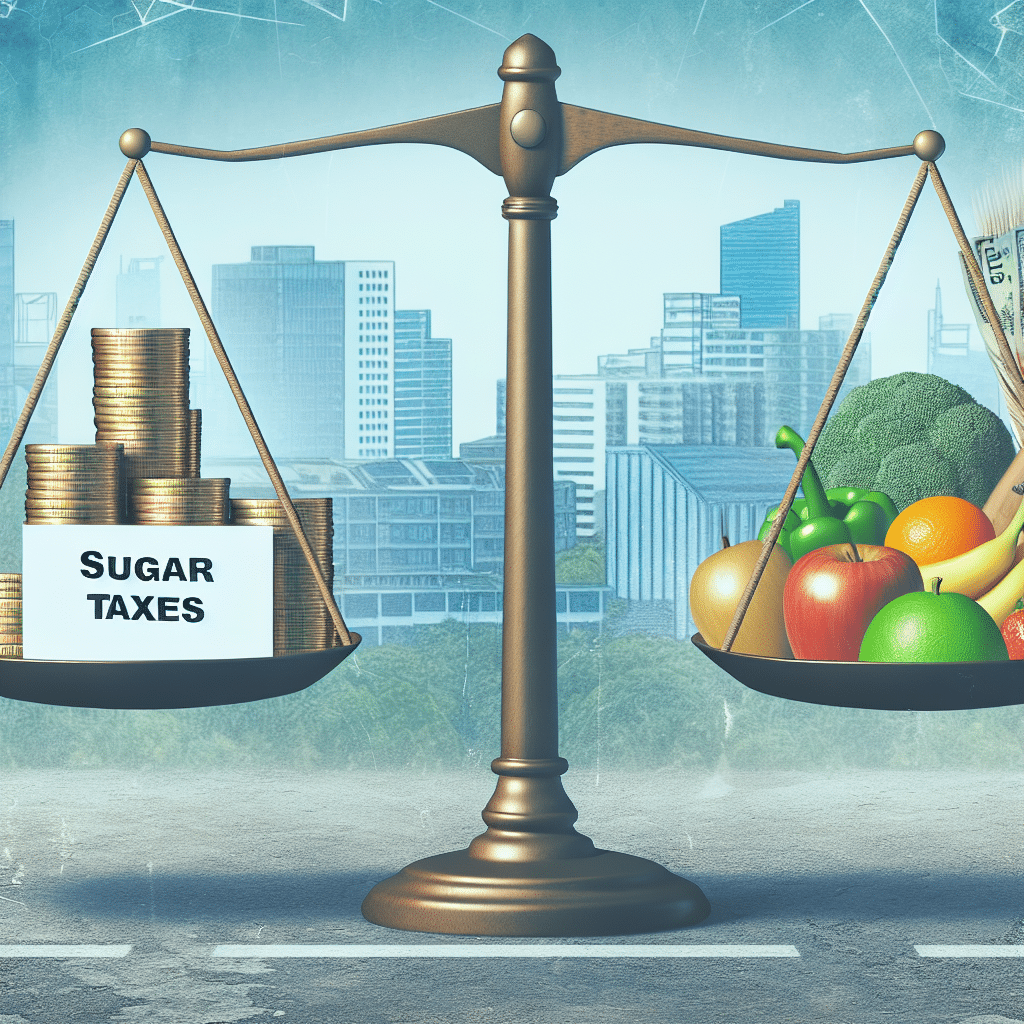Are Sugar Taxes Working?
-
Table of Contents
- Sugar Taxes: An Effective Tool for Public Health?
- The Rationale Behind Sugar Taxes
- Global Case Studies: Sugar Taxes in Action
- Assessing the Impact of Sugar Taxes on Consumption and Health
- Economic and Industry Responses
- Challenges and Criticisms of Sugar Taxes
- Conclusion: Are Sugar Taxes Effective?
- ETprotein: Enhancing Your Health with High-Quality Protein Products
Sugar Taxes: An Effective Tool for Public Health?

In recent years, governments around the world have been grappling with the growing public health crisis of obesity and related diseases such as type 2 diabetes and heart disease. One policy measure that has gained traction is the implementation of sugar taxes, also known as soda taxes or sweetened beverage taxes. These taxes aim to reduce the consumption of sugary drinks, which are often linked to unhealthy weight gain and various health problems. But are these taxes truly effective in achieving their intended health outcomes? This article delves into the evidence to explore the impact of sugar taxes on public health.
The Rationale Behind Sugar Taxes
The primary goal of sugar taxes is to discourage the consumption of sugar-sweetened beverages (SSBs) by making them more expensive. The rationale is based on basic economic principles: as the price of a product increases, the demand typically decreases. Health advocates argue that by reducing the intake of sugary drinks, which are high in calories and low in nutritional value, sugar taxes can help to combat obesity and other metabolic diseases.
Global Case Studies: Sugar Taxes in Action
Several countries and cities have implemented sugar taxes, providing real-world data on their effectiveness. Here are some notable examples:
- Mexico: In 2014, Mexico introduced a nationwide tax on sugary drinks. Research has shown a sustained decrease in the purchase of taxed beverages, with a more significant reduction among lower-income households.
- Berkeley, California: The first city in the United States to pass a soda tax in 2014, Berkeley has seen a significant drop in SSB sales and an increase in water sales.
- The United Kingdom: The UK’s Soft Drinks Industry Levy, implemented in 2018, not only led to a reduction in the purchase of sugary drinks but also prompted manufacturers to reformulate their products to contain less sugar.
Assessing the Impact of Sugar Taxes on Consumption and Health
Research on the impact of sugar taxes shows mixed results, with some studies indicating a decrease in sugary drink consumption and others showing minimal change. However, the overall trend suggests that sugar taxes can lead to a modest reduction in the purchase and consumption of taxed beverages, particularly in lower-income populations who are often at higher risk for obesity and related diseases.
Economic and Industry Responses
Sugar taxes also have economic implications. They can generate significant revenue for governments, which can be earmarked for public health initiatives. Additionally, the beverage industry often responds to these taxes by reformulating products to reduce sugar content, thereby avoiding the tax and offering healthier options to consumers.
Challenges and Criticisms of Sugar Taxes
Despite some evidence of success, sugar taxes face several challenges and criticisms. Opponents argue that they are regressive, disproportionately affecting low-income consumers. There is also debate over whether sugar taxes alone can significantly impact public health, given the complexity of obesity and the multitude of factors contributing to it.
Conclusion: Are Sugar Taxes Effective?
While sugar taxes are not a silver bullet for solving the obesity epidemic, they are one tool among many that can contribute to a healthier population. The evidence suggests that sugar taxes can reduce the consumption of sugary drinks, particularly among high-risk groups, and encourage industry reformulation. However, for maximum effectiveness, sugar taxes should be part of a comprehensive public health strategy that includes education, access to healthy foods, and physical activity promotion.
ETprotein: Enhancing Your Health with High-Quality Protein Products
As we consider the role of sugar taxes in promoting public health, it’s also important to highlight the importance of a balanced diet that includes high-quality protein. ETprotein offers a range of organic bulk vegan proteins that can help support a healthy lifestyle. Their products, which include organic rice protein, pea protein, and various seed proteins, are non-GMO, allergen-free, and characterized by a neutral taste. These proteins are ideal for anyone looking to reduce their sugar intake and improve their overall diet.
Whether you’re a manufacturer looking to create healthier food and beverage options in response to sugar taxes or an individual seeking to enhance your personal nutrition, ETprotein’s offerings provide a versatile and nutritious solution. By incorporating these high-quality proteins into your products or diet, you can contribute to the global effort to combat obesity and encourage healthier living.
About ETprotein:
ETprotein, a reputable protein and L-(+)-Ergothioneine (EGT) Chinese factory manufacturer and supplier, is renowned for producing, stocking, exporting, and delivering the highest quality organic bulk vegan proteins and L-(+)-Ergothioneine. They include Organic rice protein, clear rice protein, pea protein, clear pea protein, watermelon seed protein, pumpkin seed protein, sunflower seed protein, mung bean protein, peanut protein, and L-(+)-Ergothioneine EGT Pharmaceutical grade, L-(+)-Ergothioneine EGT food grade, L-(+)-Ergothioneine EGT cosmetic grade, L-(+)-Ergothioneine EGT reference grade and L-(+)-Ergothioneine EGT standard. Their offerings, characterized by a neutral taste, non-GMO, allergen-free attributes, with L-(+)-Ergothioneine purity over 98%, 99%, cater to a diverse range of industries. They serve nutraceutical, pharmaceutical, cosmeceutical, veterinary, as well as food and beverage finished product distributors, traders, and manufacturers across Europe, USA, Canada, Australia, Thailand, Japan, Korea, Brazil, and Chile, among others.
ETprotein specialization includes exporting and delivering tailor-made protein powder and finished nutritional supplements. Their extensive product range covers sectors like Food and Beverage, Sports Nutrition, Weight Management, Dietary Supplements, Health and Wellness Products, and Infant Formula, ensuring comprehensive solutions to meet all your protein needs.
As a trusted company by leading global food and beverage brands and Fortune 500 companies, ETprotein reinforces China’s reputation in the global arena. For more information or to sample their products, please contact them and email sales(at)ETprotein.com today.














